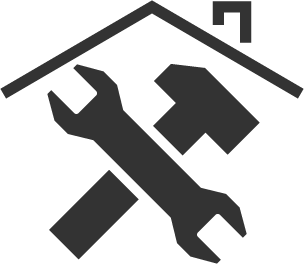Many commercial roofs have a very low slope or they are completely flat, making them markedly different from residential roofs. In addition, they are usually comprised of different materials than the roof on your house. All of this means commercial roofs have different problems than residential roofs. If you own a commercial building, it is your responsibility to maintain the roof to keep the business and everyone safe even if you are renting the building to the business owner. You should make sure you go up on the roof and inspect it regularly. Here are a few things to look for during these inspections.
Pooling Water
Because of the low slope of commercial roofs, water does not flow off as easily as a high-sloped residential roof. This can lead to pools of water forming. Anytime water is allowed to sit, it can seep into the wood on the roof and damage it. This can cause the roof to leak or even fall and injure someone inside. You should mark the area where the water has pooled, push the water off the roof, and contact a commercial roofing contractor. The contractor will install or repair the drainage system to prevent further problems.
Broken Flashing
Flashing are the strips of metal that cover and go around joints in the roof. They keep the water from leaking into the building where the roof is not a solid piece. Unfortunately, these pieces are not heavy or durable. Wind, rain, snow, and sun can damage the flashing, making it less effective. In addition, once damaged, the pieces may break and fall from the building, injuring someone walking below. Make note of any broken flashing, and remove it if it is very damaged and about to fall. Any loose pieces may also end up pulling some of the roofing material off the roof, leaving the wood below exposed to the elements. The repair tech will replace any damaged pieces so the roof is safe and waterproof again.
Bubbling Coatings
Many commercial buildings have tar, foam, or other rolled-on coatings on the roof. If not put on properly, or with weather changes, this coating can lift and create bubbles. As you walk across the roof, take notice of even tiny bubbles as moisture may seep in and make them grow. In addition, rain or snow water may get underneath these bubbles and damage the roof. Do not attempt to open the bubbles yourself. A professional will know the best way to release any water or air from them and then repair the area so new bubbles do not form.
Loose Gravel
It is common for gravel to be embedded into the tar or bitumen of a commercial roof. It is also common for some of the gravel to become loose over time. You do not want pieces of gravel to come flying off the roof to damage property or injure someone. If the gravel is moving around in spots, you need to have a professional come to repair it. They can put down a new layer of tar or bitumen and then add more gravel. If the weather does not permit the new layers, the repair person will know how to remove any loose pieces safely.
You do not want to risk someone getting hurt or damage to items inside the building because of roofing problems. Do regular inspections and contact a professional, such as a commercial roof contractor, when you see any problem. You should also contact your commercial property insurance company as they should cover the cost of any needed repairs. The main goal of everyone involved is to keep people and property safe.

 The strong roof is one that has been carefully selected for your home, according to the local climate and your home's structure. The strong roof is one that you've taken the time to maintain, season after season. It's a roof that is protected by good insulation and a good warranty. Do you have a strong roof? As you check out the articles on this website, you'll come to a better understanding of what it means to have a strong roof and what you can do to keep your roof strong. We hope you enjoy reading these articles we've collected for readers like you.
The strong roof is one that has been carefully selected for your home, according to the local climate and your home's structure. The strong roof is one that you've taken the time to maintain, season after season. It's a roof that is protected by good insulation and a good warranty. Do you have a strong roof? As you check out the articles on this website, you'll come to a better understanding of what it means to have a strong roof and what you can do to keep your roof strong. We hope you enjoy reading these articles we've collected for readers like you.